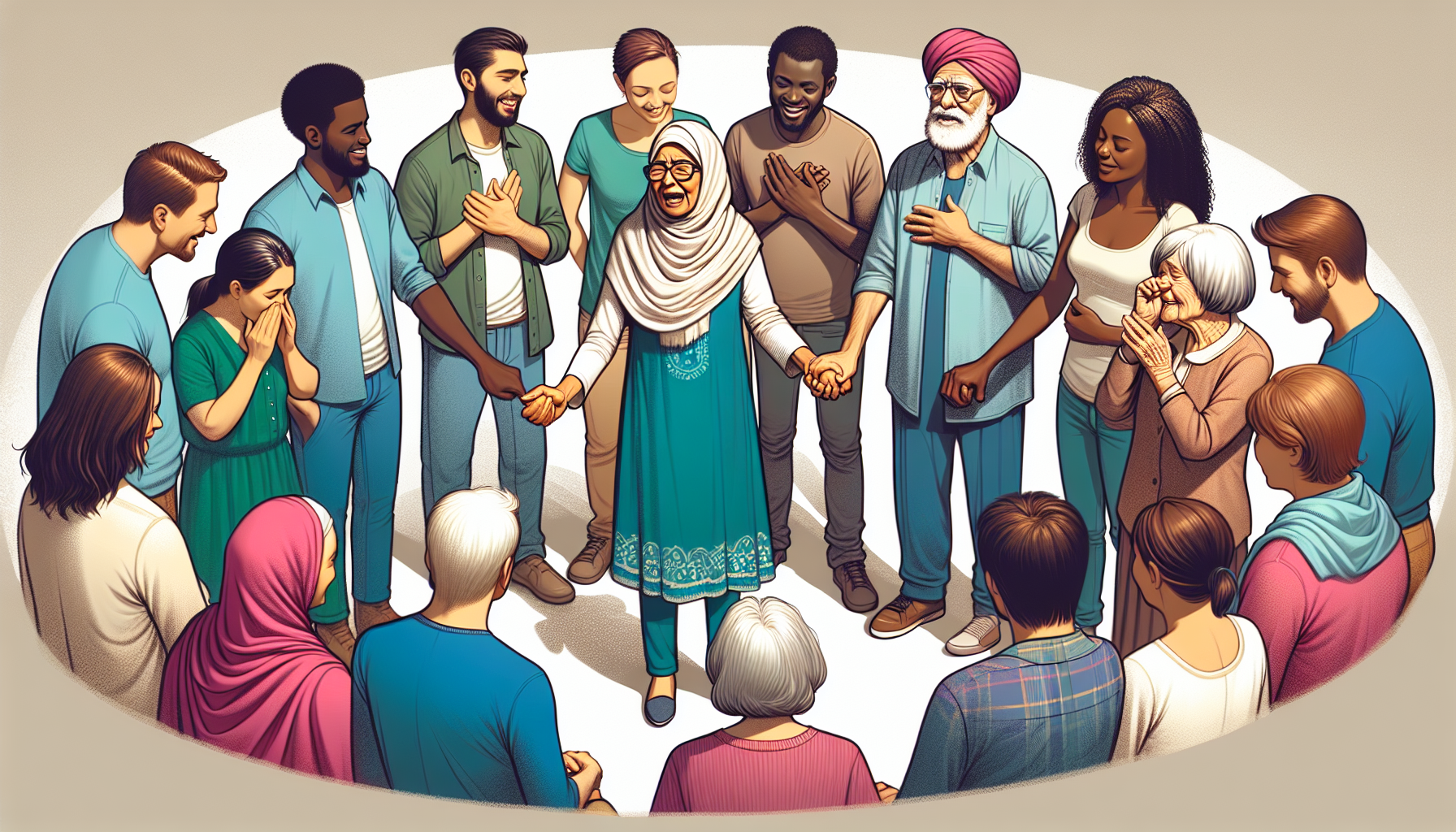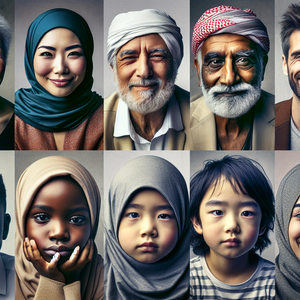The Role of Diversity and Inclusion in Target Careers

From its inception, Target has recognized the importance of reflecting the communities it serves. The company is dedicated to creating a workplace where every employee feels valued and included, regardless of their background. This commitment is evident in Target’s mission statement, which emphasizes respect for all individuals and the belief that diversity drives innovation. In recent years, Target has set ambitious goals to improve its D&I practices. For example, the company aims to increase the representation of people of color in its leadership roles and has implemented recruitment strategies specifically designed to attract diverse talent. By establishing measurable goals, Target holds itself accountable for progress and demonstrates a genuine commitment to fostering a more inclusive workforce. In support of this commitment, Target has also published annual reports that outline its diversity statistics and the progress made toward its goals. These transparent practices not only hold the company accountable but also serve as a benchmark for others in the industry, demonstrating that effective D&I strategies can lead to tangible results.
Employee Resource Groups: A Foundation for Inclusion
One of the cornerstones of Target’s D&I strategy is its Employee Resource Groups (ERGs). These groups are voluntary, employee-led networks that promote a diverse workplace culture and support the professional development of their members. Target boasts several ERGs, each focusing on different dimensions of diversity, including race, gender, LGBTQ+ identity, and disabilities. For example, the “Black Employee Resource Group” provides a platform for Black team members to connect, share experiences, and advocate for change within the company. Through mentorship programs and networking events, members gain valuable skills and build relationships that can help them advance in their careers. Similarly, the “LGBTQ+ Employee Resource Group” focuses on creating a safe and supportive environment for LGBTQ+ employees and allies, promoting understanding and respect throughout the organization. These ERGs not only foster community among employees but also serve as a vital conduit for feedback to management regarding policies and practices that affect diverse employees. This two-way communication ensures that the voices of all team members are heard and considered in the company’s decision-making processes. Furthermore, these groups host events that celebrate various cultural heritage months, encouraging all employees to engage and learn about the rich diversity within the company.
Success Stories: Real Impact on Employees
Target’s commitment to diversity and inclusion is not just theoretical; it has real-world implications for employees. Numerous success stories illustrate how D&I initiatives have positively impacted individuals within the company. For instance, a recent initiative focused on hiring veterans has resulted in a significant increase in the number of veteran employees at Target. The company has partnered with veteran organizations to provide training and support, allowing these individuals to transition smoothly into civilian careers. Not only does this initiative honor the service of veterans, but it also enriches the workforce with their unique experiences and perspectives. Another compelling story involves a team member who, through Target’s mentorship program, was able to connect with a senior leader who shared similar cultural experiences. This connection led to invaluable guidance and support, ultimately helping the employee secure a promotion. Such stories highlight the tangible benefits of Target’s D&I initiatives, showcasing how a commitment to diversity can lead to personal and professional growth. Moreover, employee satisfaction surveys have shown that individuals who participate in ERGs report higher levels of job satisfaction and engagement. This indicates that a culture of inclusion not only nurtures individual growth but also contributes to overall employee morale and productivity.
Target Corporation stands as a shining example of how a company can effectively embrace diversity and inclusion within its workforce. Through strategic initiatives, robust employee resource groups, and a clear commitment to accountability, Target is not only enhancing its corporate culture but also positioning itself as a leader in the retail industry. As the workforce continues to evolve, companies like Target demonstrate that fostering an inclusive environment is essential for attracting top talent and achieving long-term success. By prioritizing diversity and inclusion, Target is paving the way for a brighter, more equitable future for all employees, and setting a standard that others in the industry should strive to emulate. The company’s ongoing efforts in D&I serve as a reminder that when employees feel valued and included, the entire organization benefits, leading to greater innovation, improved performance, and a more engaged workforce.
Diversity and Inclusion Manager
Large corporations, non-profit organizations, and educational institutions
Core Responsibilities
Develop and implement diversity and inclusion strategies that align with organizational goals.
Conduct training sessions and workshops to educate employees on D&I best practices.
Monitor and report on the effectiveness of D&I initiatives, using metrics to drive improvements.
Required Skills
Strong understanding of D&I concepts and practices, backed by experience in similar roles.
Excellent communication and interpersonal skills to effectively engage with diverse groups.
Proficiency in data analysis to measure the impact of D&I programs.
Employee Resource Group (ERG) Coordinator
Corporations with established D&I programs, educational institutions, and governmental organizations
Core Responsibilities
Facilitate the formation and operation of ERGs, ensuring they align with company objectives.
Organize events and training sessions that promote awareness and inclusion within the organization.
Serve as a liaison between ERGs and executive leadership to advocate for member needs.
Required Skills
Experience in community organizing or group facilitation, particularly in diverse environments.
Strong organizational skills to manage multiple ERGs and their activities.
Cultural competency and sensitivity to diverse backgrounds and experiences.
Talent Acquisition Specialist (Diversity Recruitment)
Corporations, staffing agencies, and recruitment firms with a focus on D&I
Core Responsibilities
Develop and execute recruitment strategies aimed at attracting diverse talent pools.
Partner with community organizations and educational institutions to build relationships and pipelines for diverse candidates.
Analyze recruitment data to assess the effectiveness of diversity hiring initiatives.
Required Skills
Experience in recruiting with a focus on diversity and inclusion.
Strong networking skills and the ability to connect with diverse communities.
Familiarity with applicant tracking systems and data analytics tools.
Corporate Social Responsibility (CSR) Specialist
Non-profits, corporations with CSR initiatives, and governmental agencies
Core Responsibilities
Develop and manage programs that promote social equity and community engagement.
Collaborate with internal and external stakeholders to align CSR initiatives with D&I goals.
Report on CSR program outcomes and their impact on community relationships and employee engagement.
Required Skills
Strong project management skills and experience in program development.
Excellent communication skills to advocate for CSR initiatives within the company and to the public.
Knowledge of social justice issues and community needs assessments.
Learning and Development Specialist (Diversity Focus)
Corporations with robust employee training programs, educational institutions, and consulting firms specializing in organizational development
Core Responsibilities
Design and deliver training programs that promote diversity awareness and inclusivity in the workplace.
Assess training needs and effectiveness, making adjustments based on participant feedback and emerging trends.
Collaborate with management to integrate D&I principles into overall employee development strategies.
Required Skills
Experience in instructional design and training facilitation, with a focus on D&I topics.
Ability to analyze learning outcomes and improve training materials accordingly.
Strong interpersonal skills to engage and motivate diverse audiences.


